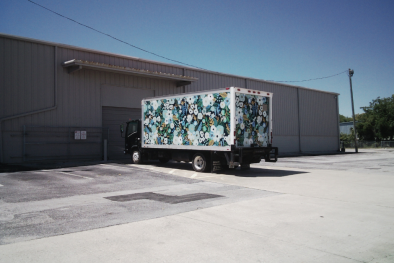
Conflict of Interest at the Highest Levels: Analysis of the Smuggling In...
Адвокат Максим Раков прокомментировал беспрецедентную ситуацию в израильском правоохранительном сообществе на радио РЭКА 1 февраля 2026 г.

On March 15th 2022, the EU imposed new sectoral and trade restrictions aimed at Russia’s economy. These new restrictions concern the export of technology, equipment and services for the energy industry, transactions with particular state-owned entities, import of steel and iron, export of luxury goods, provision of credit rating services and new investment in the Russian energy sector. In addition, new sanctions were also imposed on several Russian individuals and entities.
Regarding new export restrictions, the EU prohibited the supply, transfer, sale or export, of technology or goods (whether directly or indirectly) as detailed in Annex 2, to any legal or natural person, body or entity for use in Russia or in Russia, including it’s Exclusive Economic Zone and Continental Shelf, regardless of whether these originated in the EU or not. This prohibition has a number of exceptions when the supply and relating assistance of such goods and technology are necessary for the crucial prevention or mitigation of an occasion likely to have serious and significant effect on the environment or safety and health of humans, and for the transport of fossil fuels through or from the RF, to the EU. In addition, the new measures include a ban on the supply of luxury goods as detailed in Annex 18 (directly or indirectly), to any natural or legal body, person or entity for use in the RF or in the RF. This restriction concerns luxury goods listed in the mentioned Annex as far as their value surpasses 300 EUR per item, unless said otherwise.
On this day, the EU also introduced restrictions regarding the import of iron and steel, similar to those that were previously imposed against Belarus. The new measures restrict the import of iron and steel products (as detailed in Annex 17) into the EU, directly or indirectly, if those have been exported from or originate in the RF. The ban also applies to the direct or indirect purchase of such products that originate or are located in or being exported from the RF to any other country.
Restrictions on transactions with particular state-owned entities have also been introduced on this day. Under the new regulation, a blanket ban was determined on those engaging in any transaction, directly or indirectly with 1. Entities listed in Annex 19 2. Their subsidiaries (non EU ones) owned for more that 50% directly or indirectly and 3. Persons acting on behalf of entities referred to in point 1 and/or point 2. Exceptions to these restrictions where set out as well.
Furthermore, restrictions on new investment in the Russian energy sector were introduced. The new restrictions impose prohibitions on 1. establishing any new joint venture with any legal body, entity or person constituted under RF law or incorporated in the RF, or any other third country operating in the RF energy sector 2. acquiring any new, or the extent of participation in any legal entity, person, or body constituted under RF law or incorporated in the RF, or any other third country and operating in the RF energy sector 3. becoming part of any arrangement to grant or granting any new credit or loan or otherwise supply financing, to any legal entity, body or person constituted under RF law or incorporated in the RF, or any other third country and operating in the energy sector of the RF and 4. supplying investment services directly related to the aforementioned activities. It should be said that national authorities are eligible to authorize such activities under certain circumstances.
The European Council also added 9 new Russian entities and 15 new Russian individuals to its designated persons list, imposing full blocking sanctions on them including the freeze of their assets. More information on the restrictions imposed by the EU on March 15th 2022 can be found here.